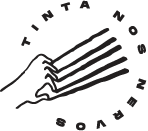INTRUSIONS
AUBE BRETON ELLËOUËT
(French - Paris, 1935)First and foremost, it is most convenient to always think of the author of these works as someone whose life allowed not only to cross oceans but also come across many figures that are now part of the universal Art History pantheon but who, at the same time, is capable of disarming us with the candour of her small and shiny eyes, unceassingly ready to absorb and rethink the world around her.
The current intrusion, made of many other – as is usually a feature of art in general but of Surrealism in particular - , is coming close to Lisbon. The works that have been chosen for the present exhibition come together with much pertinence. They have a sense of humour, but they speak also of life, or our place within the universe and nature, as well as of the feminine and - profoundly yet in a very genuine way - of love and human relations.
Since the 1970s, Aube Breton Elléouët has been creating collages using postcards, playing cards, and image clippings from books and magazines she finds in garage sales and second-hand bookstores. (who, to be close to Alexander Calder, settled in Saché, in the French region of Tours, with her husband Yves Elléouët, a painter and writer who died in 1975), he makes collages with postcards, playing cards, images from books and magazines you find at garage sales and second-hand bookstores. decontextualized, these images of the past, sometimes linked to the world of childhood, produce in the collages by Aube Breton Ellëouêt, a poetic effect impregnated with humour.
Aube's favourite themes can be listed. Fantômas, a pulp fiction and comics character. Owls. Playing cards. Lights. The sea. Foam. Planets. Eyes...
As a feminist, she loves to pay tribute to women artists like Frida Kahlo, in whose house she spent a year in 1943, together with her mother, Jacqueline Lamba, a female visual artist in her own right, who, however, had a more reserved career of notoriety. Aube is also the director and assistant producer, of the Collection Phares, of the Seven Doc documentary label. Through it, she has been divulging the work of many Surrealist artists, mainly composed by the men from the circle of the leader, co-founder and main theorist of the historical Surrealist movement, André Breton, her father. However, she has been using this platform to helps us discover the many women artists of the movement, quite often less discussed than their male counterparts. Names such as Dora Maar, Alice Rahon, Toyen, Kay Sage, Claude Cahun, Dorothea Tanning, among other, come then to the fore.
Through her collages, Aube creates her own poetic language. Imbued with romanticism, it sometimes reveals the subversive side of her dreams. Emerging from a dreamlike world since her childhood, some of her paintings, composed of pasted images, reveal unusual scenes.
«The charm of her collages lies in the fact that they no longer look like collages. The encounters between heterogeneous elements seem so natural.» Michel Leiris, French art critic and writer.
Dedicating evermore time to her own artwork, Aube Breton Elléouët had her first exhibition in 1974, and, in 1977, she exhibited at the Triskele Gallery, in Paris. Then, a quick sucession of exhibitions followed one another, both in France and abroad (England, Spain, Switzerland, United States...). In 1991 she participated at the FIAC art fait and, later on, at the Art Basel in Switzerland, and Arco in Spain... In 1992, she has an exhibition in Tokyo. The book Aube Breton Elléouët – collages was published in 2017 (Artes Graficas Palermo).
The earth and the moon, the (theatre's) double mask, the sacred/mystical and the profane, live in a constant dynamics between light and darkness. In Aube's collages, all the elements both generate and handle, in superposition, a naturalist (in the pro-nature sense) and universalist (both in the planetary sense as well as in a pluralist, diversity sense) discourse, promoting a collective conscience that, thanks to the coherence of the artist's discursive path since the 1970s, cannot be seen as merely a response to the “topics of the moment”. Quite the contrary, Aube Breton Elléouët , through her works, gives voice - perennial, relevant and conscious - to the urgency of existential and civilizational harmony, inviting us to confront our own contemporaneity.
‘Intrusion’, oui, pourquoi pas?... (Quote by the artist when naming the exhibition)
In fact, this 'intrusion' is something that, in essence, puts something inside us, even if in an involuntary way. But whose message contains, in itself, the emergence of self-questioning about ourselves and the relationship with others, as well as reflecting the constant search for our place in the universal puzzle.
The dimensions and formats of each work vary, thus not allowing the observer's gaze to be formatted to the geometry of confinement, spatial or intellectual.
Back

